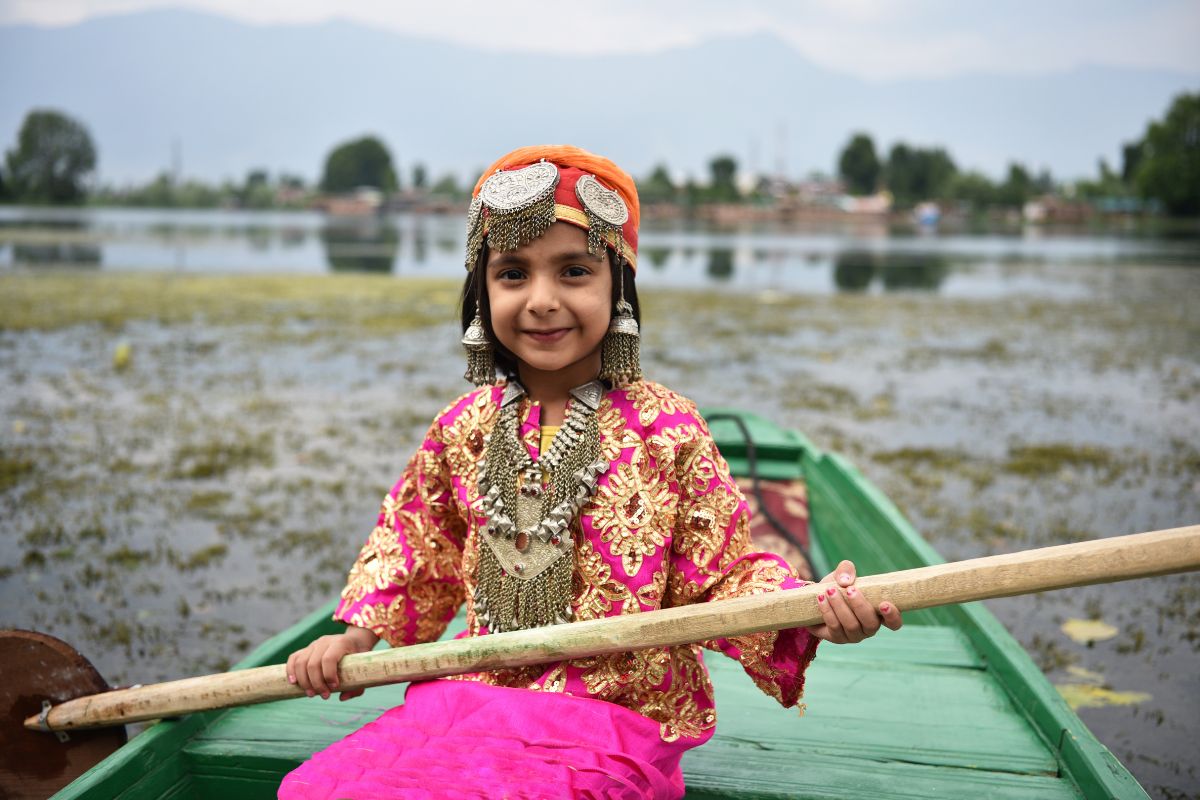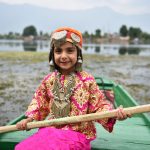Kashmir’s local culture and tradition are intriguing, and tourists flock to this region to learn about it. The main influence is mainly from Aksai Chin Chinese territory, Northern Pakistan, and northern India.
The other factor that influences the culture and traditions is a mix of religions, Hindu, Sikh, Muslim, and Buddhist. It is the reason why this state is well known for its cultural heritage.
If you are intrigued about Kashmir cultures and traditions, we have detailed everything you need to know from cuisines, attire, festivals to way you can explore them when you visit this region.
Kashmiri Cuisine
Kashmiri cuisine is prepared using unique spices locally grown, hence their meals are rich in flavors. These are the popular cuisines that you should try when you visit Kashmir:
- Rogan Josh: This is one of the staple cuisines in Kashmir aromatic lamb curry
- Gushtaba: This cuisine is prepared using finely ground lamb, and cooking is done in creamy gravy.
- Yakhni: This is another meat cuisine is prepared using yogurt, lamb or chicken, and aromatic spices.
- Kahwa: This well-prepared traditional tea uses almonds and saffron.
- Wazwan: This cuisine is prepared by renowned ‘wazas’ chefs. The cuisine is prepared using meat and vegetables. It is best served in a traditional style.
Kashmiri Music and Dance
Kashmir music and dance is part of the culture. Classical music forms, along with Sufi music, have been a major music tradition in the region. Art forms Kashmiri folk music is mainly sung with the help of traditional instruments like santoor, rabab, and tabla. Here are dances and music used to portray the culture.
Wazwan Dance
Although Wazwan is widely celebrated for food, traditional dances are performed during its courses. Such dances are a feast for the eyes, highlighting the warmth and hospitality of the Kashmiri culture.
Sufi Music
There are so many Sufi shrines in Kashmir, and the same music often narrates stories of love, spirituality, and faith. These melodious tunes can be heard live at their respective shrines.
Local Festivals and Celebrations
The festivals in Kashmir are an inseparable part of the culture and are high-spirited, colorful, and lively. Notable festivals include the following:
Eid
Eid, which in Kashmir is held with much fanfare, is characterised by prayers, feasts, and family get-togethers. The many souks in the region are abuzz with locals visiting relatives, dining together, and celebrating the season.
Lohri
This is an age-old celebration of the harvest season, an inspired winter festival. They gather with friends around bonfires and sing their folk songs, and dance!
Shikara Festival
This festival, which takes place on Dal Lake, promotes the culture of Kashmir in the form of music, dance, and art. You can also hire a shikara(a traditional wooden boat) and celebrate on the water.
Costumes
Kashmir’s dress code is characterized by colorful and decorative clothes. Most of the people wear folk costumes. Women beautify themselves with beautiful ornamentation, nose rings, bangles, earrings, necklaces, and lose salwar kameez, which help them in the burning hot season.
While men are getting ready in kurta pajama, shalwars, gurabi, and skullcap. Pheran is a kind of overcoat worn by the people of Kashmir during winter, which is often adorned with colourful patches and intricate embroidery work.
Kashmiri people wear loose gowns of different fabrics, and the difference lies only in the quality of the fabric, as per weather. The men mostly have headgear while the women have a skull cap.
It is mostly a form of respect that women do for strangers and old people to cover their heads and shoulders. Kashmiri attire actually signifies their culture and way of living life. And it also proves that Indians are living up to their culture.
How to explore the Local Culture and Traditions of Kashmir
If you wish to experience the local culture and traditions of Kashmiri people, you need to step beyond sightseeing and instead indulge in the lifestyle, tales, and ways of the indigenous people of Kashmir.
Begin by spending the nights at traditional houseboats or homestays, offering engagement with people and away from touristic hospitality. Be a part of local celebrations such as Eid, Navreh, or the Tulip Festival to observe the community spirit and hyphy customs.
Indulge in Kashmiri food and find out how it is prepared, including the traditional Wazwan banquet. Take a short trip to fine art workshops to see how Pashmina shawls, paper Mâché crafts, and walnut wood carvings are made. These experiences will provide a true insight into the cultural heart of Kashmir.
Stay with locals.
If you want to feel the pulse of the culture of Kashmir, staying with the locals would be the best option. There are plenty of homestays in Srinagar where you can experience the true nature of Kashmiri hospitality!
It is a great experience to learn about local traditions, food, and culture in Kashmir by staying with local families. You will also be able to witness everyday customs and behaviors that tourists often overlook.
Join Cultural Festivals
Kashmir, with its immense variety of religion and culture, has festivals that are a burst of attractive diversity. Eid is a celebration scene to a myriad of community feasts, Navreh is replete with sacred symbols, prayers, and a sprinkling of Shivratri (Herath), celebrated with both ritual and symbolic offerings, the events are distinct.
To participate in such festivals gives you a glimpse of the traditional costumes, music, and family traditions. In general, locals are friendly and willing to share their traditions and way of life with visitors.
These celebrations offer you an insight into the beliefs and values that affect everyday life. This is a never-before experience to be connected to the soul of Kashmir.
Try Authentic Kashmiri Cuisine
Cuisine is an essential part of any culture, and Kashmiri food is no exception. Indulging in treats such as Rogan Josh, Dum Aloo, Yakhni, and Gushtaba gives you a taste of the region’s marvellous cuisine.
The Kashmiri Wazwan, served at weddings and festivals, is a Spanish-style many-course meal which is a mark of community identity and tradition. Dinners are generally seated on the floor and communal, which just emphasizes the importance of being together.
Sipping on local brews like Kahwa or Noon Chai adds to the charm. So learning how to make these dishes can help you to understand Kashmiri life better.
Visit Artisan Workshops
Kashmir is known for its crafts, and it’s worth visiting the workshop of artisans to watch the precision with which each item is made. You can watch the skillful workers in Srinagar and Baramulla produce fine Pashmiana shawls, Paper Mâché articles, and walnut wood furniture.
Seeing these artisans at work is a lesson in the patience and commitment required to uphold ancient traditions. Most workers are more than willing to discuss techniques and history of their trade.
Buying from them also helps to sustain local livelihoods. This is a hands-on activity that acquaints you with the Kashmir valley’s artistic heritage.
Explore Spiritual Sites
Religious and spiritual structures of Kashmir have a rich history of spiritual and religious heritage. You can visit the shrines, such as Hazratbal, Khanqah-e-Moula, or temples, such as Shankaracharya is a window to the local religious worship practices.
These holy sites are typically peaceful and full of symbolism, architecture, and communal functions. Attend a ritual or just stand in the aura, and you’ll understand what Kashmiriyat, the spirit of oneness of the region, is all about.
Thousands of men and women of all backgrounds have prayed side by side here for centuries. Respectful and curious examination of such places reveals the profound spirituality that gives Kashmir its distinctive character.










